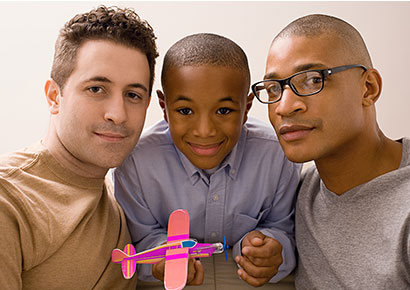Court ends last US gay adoption ban – compares it to racism
 The Nebraska Supreme Court has struck down a decades-old prohibition on gay and lesbian foster and adoptive parents; the last such ban in the US.
The Nebraska Supreme Court has struck down a decades-old prohibition on gay and lesbian foster and adoptive parents; the last such ban in the US.
The 1995 provision, known as Memo 1-95, barred homosexual individuals and same-sex couples in Nebraska from fostering children, which also meant, as a result, that they could not go on to adopt the children.
Three same-sex couples challenged the prohibition. In 2015, a district court found that the ban was indeed unconstitutional, but the state appealed the decision.
On Friday, the Nebraska Supreme Court unanimously rejected the state’s appeal and confirmed that Memo 1-95 unfairly discriminated against the lesbian and gay couples.
Justice John Wright wrote in the ruling that the state’s anti gay adoption policy was “legally indistinguishable from a sign reading ‘Whites Only’ on the hiring-office door.”
“It is the discriminatory stigma and unequal treatment that homosexual foster applicants and licensees must suffer if they wish to participate in the foster care system. The imminent injury that the court redressed was the plaintiffs’ inability to be treated on equal footing with heterosexual applicants,” he said.
“This is a victory for children and LGBT Nebraskans,” commented Danielle Conrad, Executive Director of ACLU of Nebraska, one of the groups that represented the couples in the landmark case.
“There are tens of thousands of LGBT people who call the Cornhusker State home and thousands of Nebraska children in need of a foster care placement. This victory means that Nebraska’s motto of ‘Equality before the Law’ rings out more truly for all in our state.”
Leslie Cooper of the ACLU LGBT & HIV Project added: “The era of states baselessly branding LGBT people unfit to parent is over. Children in the foster care system are no longer needlessly denied access to available loving families.”
Numerous studies have repeatedly confirmed that children raised by same-sex couples fare no worse (and in some studies better) than those raised by different-sex couples.
Leave a Reply